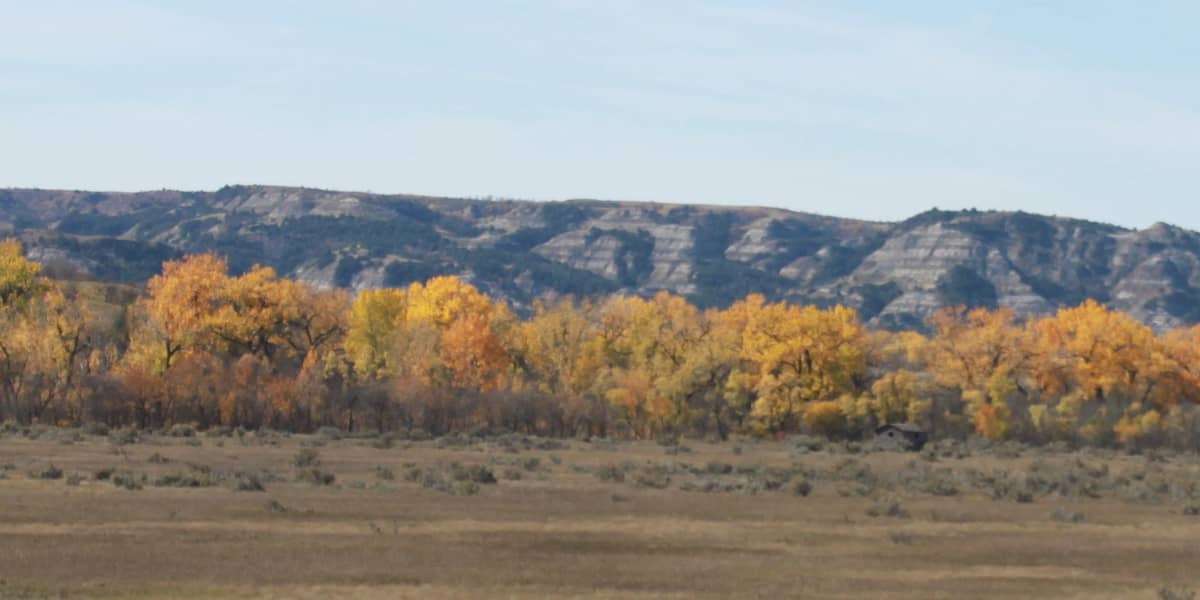
U.S. Representative for the State of North Dakota, Kelly Armstrong, has voted against two of the largest bills in U.S. history for advancing outdoor recreation access in places like Teddy Roosevelt National Park and dedicating $16 Million to the NDG&F to foster habitat programs benefitting endangered wildlife and huntable game in the state. Simonson Photo.
By Nick Simonson
VIEWS ARE NOT REFLECTIVE OF i3G Media
When your biggest brag to your constituents to lead off campaign season is an advertisement about driving 80,000 miles in four years – while not mentioning you get a $250,000 annual budget in taxpayer dollars for staff and travel – there’s something wrong with your priorities. In the case of North Dakota’s U.S. Representative Kelly Armstrong, there’s a lot wrong with his voting record when it comes to preserving, protecting, and advancing hunting, angling and outdoor recreation opportunities and the priorities of sportsmen in this state.
First and foremost, hunters, anglers, campers, and anyone who enjoys time outdoors have been blessed in the last four years with not one, but two “once-in-a-lifetime” bills which would help sustain and preserve habitat, hunting opportunities, public access to hunting and angling areas, and upgrades to just about every park and green space from Teddy Roosevelt National Park on down to county and city parks and boat launches. Armstrong has voted against both.
The Great American Outdoors Act (H.R. 1957) restored desperately needed funding for a variety of projects which open and maintain countless areas of access to public lands, national parks, U.S. Fish & Wildlife Service acres and other places people recreate on throughout our country and North Dakota. From launching a boat, to taking in the peace of wide-open spaces, the funding from the Act was designed to restore what once was, both aesthetically and financially. Such a purpose, especially coming out of the pandemic when so many people relied on hunting, fishing, and outdoor recreation as release from a stressful time, was beyond required as many found these public places upon their visits in various states of disrepair. With the creation of the National Parks and Public Land Legacy Restoration Fund under the Act, money from the taxes on offshore drilling that had originally been delegated for these projects and maintenance but had been slushed away to pork projects was restored.
While both North Dakota U.S. Senators Kevin Cramer and John Hoeven voted to pass it with bipartisan support, Armstrong’s nay vote on the Great American Outdoors Act showed where public lands for outdoor recreationists rest on his list of priorities.
The Recovering America’s Wildlife Act (H.R. 2773), now pending a final vote before the U.S. Senate, would send millions of dollars to every state in the union for those wildlife agencies to better manage habitat programs for the preservation and protection of endangered species, including an estimated $16 million which would go to the North Dakota Game & Fish Department. As a rising tide lifts all boats, these programs would also create habitat for the ducks, pheasants, grouse, and most notably this time of year, the deer that hunters love to pursue. Additionally, through private land programs advancing such conservation, operators and farms in North Dakota would likely receive many of the benefits to help in their stewardship of the land and increase the bottom line on their family farm or ranch, making conservation not only proper, but profitable.
Again, Armstrong voted against the second of these two watershed bills which would improve populations of huntable game on the landscape and increase opportunities for hunters and for landowners. But that isn’t surprising, noting the significant dumpings of dark money he has received from anti-conservation PACs, and the fact that this was a trend prior to him being elected to the U.S. House of Representatives.
In his final year in the North Dakota Senate, Armstrong helped restoke the efforts of a select few other wealthy, landowning lawmakers and the special interest groups which support them, to remove more than two million acres in public hunting access and overturn laws which stood on the books for over 90 years in the state allowing hunters to access unposted land. His vote for S.B. 2225 in 2017 began a bitter battle at the Capital in Bismarck which would spill into the next two sessions, and the threat of the state losing its unique access law and becoming like every other in the union (but with less public land), was thwarted only by the considerable efforts of sportsmen and conservation groups. It also began his dismal record which has put North Dakota’s hunters in the backseat for the 80,000 miles he’s driven over the last four years.
It’s been said that politicians and diapers should be changed often, and both for the same reasons. In the case of Kelly Armstrong, his record for North Dakota sportsmen stinks. That’s why on Tuesday, November 8, I’m voting for Cara Mund. She’s an independent candidate with an independent voice, who can put sportsmen up front again because she’s not subject to political parties, PACs, or partisan hackery. Unless you’re fond of the view (and the smell) riding in the backseat and having your hunting and fishing interests packed back there with you, I’d suggest you do the same. It’s time to end this 80,000-mile, million-dollar, four-year, anti-sportsman joyride.
